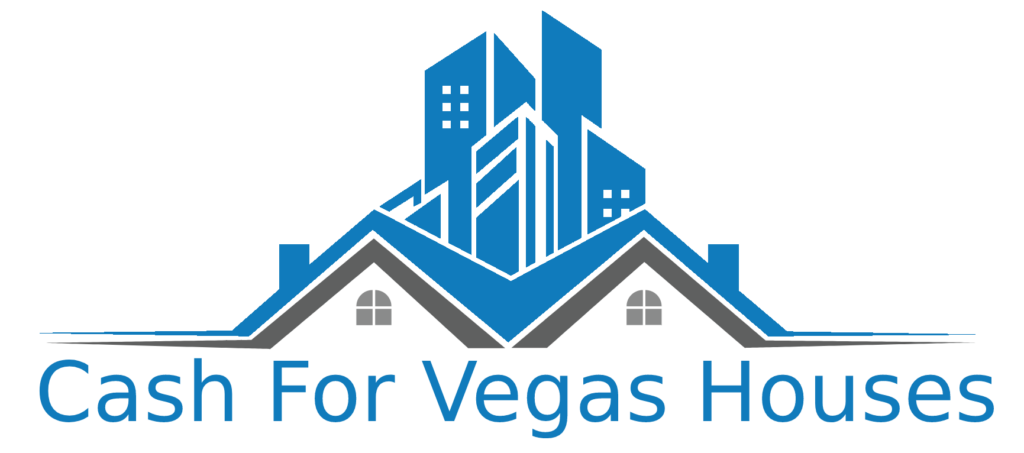Understanding how and when you get paid after selling your house is crucial for homeowners looking to make a swift and profitable sale. In this blog, we’ll guide you through the entire process, ensuring you know exactly what to expect when selling your house fast for cash in Las Vegas.
From listing your property to closing the deal, each stage of the house-selling process has its own set of intricacies. We’ll break down these steps, highlight the differences between traditional and cash sales, and provide tips on how to expedite the process.
By the end of this blog, you’ll have a clear roadmap to navigate the Las Vegas real estate market and get your money quickly after selling your house.
Overview of the Typical Home Selling Process

Selling a house in Las Vegas involves several key steps that homeowners need to be aware of. The process typically begins with listing the property, which includes preparing your home for sale, setting a competitive price, and marketing it to potential buyers.
Once your home is listed, you’ll start receiving offers from interested buyers. Evaluating these offers carefully is crucial, especially if you’re looking to sell quickly for cash.
After accepting an offer, the next step is to move towards closing the deal. This involves a series of legal and financial steps, including inspections, appraisals, and finalizing the purchase agreement.
Understanding each of these stages can help you navigate the process more smoothly and ensure that you get the best possible outcome from your sale.
Differences Between Traditional Sales and Cash Sales
One of the most significant decisions you’ll need to make is whether to pursue a traditional sale or a cash sale. Traditional sales often involve buyers who need to secure financing through a mortgage, which can add time and complexity to the process.
On the other hand, cash sales are generally faster and more straightforward. Cash buyers do not need to secure financing, which eliminates many of the potential delays associated with traditional sales. This can be particularly advantageous if you’re looking to sell your house quickly.
However, it’s important to note that cash offers may be lower than offers from buyers who need financing, as cash buyers often expect a discount for the convenience and speed they provide.
Steps Leading Up to Receiving Your Money

The following steps should be kept in mind if you want to speed up the process of getting cash after selling your house:
Pre-Sale Preparations
Before you can sell your house, it’s essential to make sure it’s in the best possible condition to attract buyers. This involves several key steps:
Home Inspection and Repairs:
Conducting a thorough home inspection can help identify any issues that need to be addressed before listing your property. Fixing these problems can prevent potential buyers from negotiating a lower price or backing out of the deal.
Common repairs might include fixing leaky faucets, repairing damaged walls, and ensuring all electrical systems are functioning properly.
Staging and Marketing:
Staging your home involves arranging furniture and decor to make the property more appealing to potential buyers.
Professional photos and virtual tours can also enhance your marketing efforts, making your listing stand out online.
Effective marketing strategies might include listing your property on popular real estate websites, using social media, and hosting open houses.
Negotiation and Accepting an Offer
Once your home is listed and potential buyers start showing interest, the negotiation phase begins:
Evaluating Cash Offers:
When selling your house for cash, it’s crucial to evaluate offers carefully. Cash offers can vary significantly, so consider factors such as the buyer’s reputation, the offer amount, and the proposed closing timeline.
Working with a real estate agent experienced in cash sales can help you navigate this process and ensure you get a fair deal.
Importance of Working with a Real Estate Agent or Cash Buyer Company:
A real estate agent can provide valuable insights and guidance during the selling process. They can help you price your home competitively, market it effectively, and negotiate with buyers.
Alternatively, working with a reputable cash buyer company can streamline the process, as these companies often have established procedures for quick sales and can offer competitive cash offers.
What Happens During the Closing Process?

The closing process is the final step in selling your house, where all the legal and financial details are finalized. Here’s what typically happens:
Signing the Purchase Agreement:
Both the buyer and seller sign the purchase agreement, which outlines the terms and conditions of the sale.
This document includes the sale price, closing date, and any contingencies that must be met before the sale can be completed.
Title Search and Insurance:
A title search is conducted to ensure that the property is free of any liens or legal issues that could affect the sale.
Title insurance is also purchased to protect both the buyer and seller from any future claims against the property.
Escrow Account Setup:
An escrow account is established to hold the buyer’s funds until all conditions of the sale are met.
The escrow agent, a neutral third party, manages the account and ensures that all documents and funds are properly handled.
This provides security for both parties and ensures that the transaction proceeds smoothly.
Typical Duration for Cash Sales vs. Traditional Sales:
Cash sales generally close much faster than traditional sales. While a traditional sale might take 30 to 60 days to close, a cash sale can often be completed in as little as one to two weeks.
This expedited timeline is one of the main advantages of selling your house for cash.
Factors That Can Speed Up or Delay Closing:
Several factors can influence the closing timeline. For example, if the buyer is obtaining financing, the process may take longer due to the need for loan approval and underwriting.
Conversely, a cash sale can proceed more quickly since there are no financing contingencies.
Other factors that can affect the timeline include the results of the home inspection, the speed of the title search, and the efficiency of the escrow agent.
So, When Do You Get Paid After Selling Your House?

When selling your house, the method of payment is an important consideration. There are two primary methods:
Wire Transfer:
This is the most common method for receiving payment in a real estate transaction. The funds are electronically transferred from the buyer’s account to your account.
Wire transfers are fast, secure, and convenient, allowing you to access your money almost immediately after the transaction is completed.
However, it’s crucial to verify all details to avoid any potential fraud.
Cashier’s Check:
Another option is receiving a cashier’s check, which is a check guaranteed by the bank. This method is also secure and reliable, but it may take a bit longer to access the funds compared to a wire transfer.
You will need to deposit the check into your bank account, and there may be a short holding period before the funds are available.
Timing of Payment
The timing of when you receive your payment can vary based on several factors:
Same-Day Payment:
In many cases, especially with cash sales, you can receive your payment on the same day as the closing. Once all the documents are signed and the transaction is finalized, the funds are transferred to your account or provided via a cashier’s check.
Differences in “Wet” vs. “Dry” Funding States:
The timing of payment can also depend on whether you are in a “wet” or “dry” funding state. In “wet” funding states, the funds are disbursed immediately upon closing.
In “dry” funding states, there may be a short delay as the documents are reviewed and approved before the funds are released.
Nevada, including Las Vegas, operates under “wet” funding rules, meaning you typically receive your money right at closing.
Specifics for Las Vegas
In Las Vegas, the process is generally streamlined, especially for cash sales. The local real estate market and well-known Cash for Vegas Houses are accustomed to quick transactions, and the infrastructure is in place to facilitate fast payments.
This means that, barring any unforeseen issues, you can expect to receive your money promptly after closing.
Factors That Affect the Timing of Your Payment

The following factors also affect the timing of your payment after selling a house:
Buyer’s Financing Method
The method by which the buyer finances the purchase of your home can significantly impact the timing of your payment:
Cash Buyers:
Cash buyers can expedite the process since they do not need to secure a mortgage. This eliminates the time-consuming steps of loan approval and underwriting.
As a result, cash sales can often close within a week or two, allowing you to receive your payment quickly.
Mortgage-Financed Buyers:
When the buyer needs to obtain a mortgage, the process can take longer. The buyer must go through the loan application, approval, and underwriting process, which can add several weeks to the timeline.
Additionally, any issues that arise during this process, such as appraisal discrepancies or credit problems, can further delay the closing.
Benefits of Selling to a Cash Buyer:
Cash buyers can significantly expedite the selling process. Since they do not need to secure financing, the transaction can move forward without the delays associated with mortgage approvals.
Cash buyers are often investors or companies specializing in quick purchases, which means they are prepared to close the deal swiftly.
Preparing Your Documents in Advance
Having all necessary documents ready can prevent delays and ensure a smooth transaction:
Essential Paperwork for a Quick Sale:
Gather all relevant documents, including the title deed, property tax receipts, mortgage statements, and any warranties or manuals for appliances included in the sale.
Having these documents organized and readily accessible can streamline the closing process.
Pre-Inspection Reports:
Consider conducting a pre-inspection of your home and addressing any issues identified in the report.
Providing potential buyers with a pre-inspection report can build trust and reduce the likelihood of delays caused by unexpected repairs.
Working with Experienced Professionals
Engaging experienced professionals like the one in Cash for Vegas Houses can make a significant difference in the speed and efficiency of your sale:
Role of Real Estate Agents:
A knowledgeable real estate agent can guide you through the selling process, help you set a competitive price, and market your property effectively.
They can also assist in negotiating with buyers and ensuring that all paperwork is completed accurately and on time.
Role of Attorneys:
Hiring a real estate attorney can provide additional peace of mind. An attorney can review contracts, handle legal issues, and ensure that the transaction complies with all local laws and regulations.
Their expertise can help prevent potential legal implications that could delay the sale.
Utilizing Technology
Leveraging technology can also speed up the selling process:
Digital Signatures:
Use digital signature platforms to sign documents electronically. This can save time and reduce the need for in-person meetings.
Virtual Tours and Showings:
Offer virtual tours and showings to attract buyers quickly. This can be particularly useful for out-of-town buyers or those looking to make a swift decision.
What to Do After Receiving Your Money?

Once you receive the payment from selling your house, it’s important to manage the proceeds wisely:
Paying Off Existing Mortgages and Debts:
The first step is to pay off any remaining mortgage balance on the property. This ensures that you are free from any financial obligations related to the house.
Additionally, consider using a portion of the proceeds to pay off other high-interest debts, such as credit card balances or personal loans.
Reducing your debt can improve your financial health and provide more flexibility for future investments.
Investing or Saving the Remaining Funds:
After settling your debts, you may have a significant amount of money left. It’s crucial to make informed decisions about how to use these funds.
Whether you choose to invest in stocks, bonds, real estate, or other assets, a well-thought-out investment strategy can help grow your wealth over time.
Alternatively, you might decide to save a portion of the proceeds in a high-yield savings account for future needs or emergencies.
Tax Implications
Understanding the tax implications of selling your house is essential to avoid any surprises:
Understanding Capital Gains Tax:
The amount of tax you owe depends on several factors, including how long you owned the property and your overall income.
How to Minimize Tax Liabilities:
There are strategies to minimize your tax liabilities when selling a house. For example, keeping records of any home improvements you made can help increase your cost basis, thereby reducing your taxable gain.
If you are selling an investment property, you might consider a 1031 exchange, which allows you to defer capital gains tax by reinvesting the proceeds into a similar property.
Final Thoughts:
Selling your house quickly for cash in Las Vegas can be a streamlined and efficient process if you understand the steps involved and prepare accordingly. By choosing the right buyer, preparing your documents in advance, and working with experienced professionals, you can ensure a smooth transaction and receive your payment promptly. Managing your proceeds wisely, understanding the tax implications, and planning for your future are crucial steps to take after the sale.
Get in touch with Cash for Vegas Houses for more information regarding your houses in Las Vegas.



